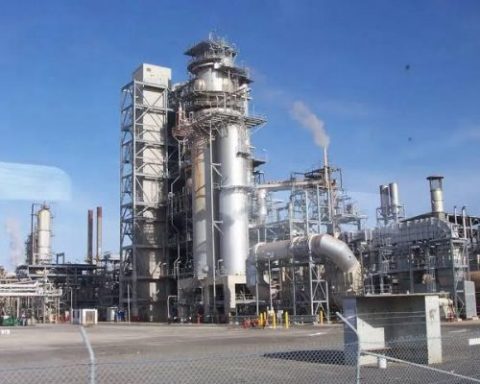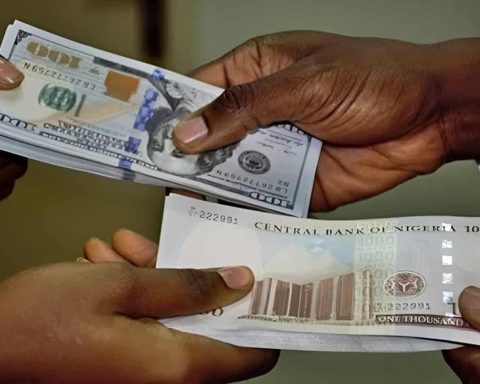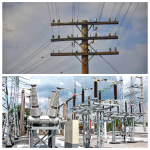Despite an increase in electricity billing nationwide, power distribution companies (DisCos) reported a loss of more than N202 billion in their revenue collections for the first quarter of 2025.
The latest report published by the Nigeria Electricity Regulatory Commission (NERC) revealed that electricity billing by the 12 DisCos in the country surged by N393.26 billion (106.68 per cent) year-on-year from the same period in 2024.
Join our WhatsApp ChannelThe NERC report revealed that the DisCos billed customers a total of N761.91 billion between January and March 2025.
However, only N559.3 billion was collected during that period, meaning that revenue collection efficiency was 73.4 per cent, and there was a shortfall of N202.61 billion, or 26.6 per cent.
This performance is marginally better than the same period in 2024, when the disCos collected N291.62 billion out of N368.65 billion that was billed, resulting in a N77.03 billion shortfall and a collection efficiency of 79.1 per cent.
But in 2025, the amount of revenue lost more than doubled compared to the previous year, and the percentage of revenue lost as a result of non-payment rose.
The results show an increase in volume compared to the total revenue collected by all DisCos in 2024/Q4, which was N509.84 billion, out of the N658.40 billion that customers were billed. This reflects wide variations in the DisCos’ performances.
Among the DisCos, Ikeja Electric recorded the highest amount billed to customers in the period under review. While a total of N129.91 billion invoices were issued to customers, the DisCo only collected N101.2 billion, recording a revenue shortfall of N28.71 billion, or 22.1 per cent, in the period.
READ ALSO: ‘Govt Choking Us With Bills’: Nigerians Kick Against Electricity Tariff Hike
Ikeja Electric was closely followed by Eko Electricity Distribution Company, which billed N123.76 billion but collected N101.51 billion, leaving a shortfall of N22.25 billion or 17.9 per cent.
The third was Abuja Electricity Distribution Company (AEDC), which billed N109.73 billion but collected N88.1 billion, recording a gap of N21.63 billion or 19.7 per cent.
Ibadan Disco lost N61.73 billion, or 25.5%, after billing N82.88 billion but only collecting N61.73 billion. Enugu Disco billed N55.56 billion and received N44.95 billion in payments; Benin Disco billed N64.96 billion, collected N52.31 billion, and lost 19.5%.
Yola and Kaduna discos all showed concerning discrepancies between their actual revenue and their energy bills. Jos Disco had a revenue shortfall of more than 52%, as they billed N36.31 billion but only received N17.13 billion. Kano Disco recorded a 37.1 percent shortfall after billing N40.51 billion and collecting N25.5 billion.
Yola Disco billed N14.42 billion and only recovered N8.2 billion, a 43.1% shortfall, whereas Kaduna Disco billed N24.22 billion and collected N11.72 billion. The newest disco operator, Aba Power, lost N8.33 billion while billing N17.65 billion and collecting N9.32 billion.
These shortcomings have once again raised long-standing questions about how efficiently discos operate, particularly when it comes to collecting money. With the lowest collection rates in the country’s northern axis, the data presents a sobering picture of ongoing inefficiencies in revenue assurance.
The shortcomings in terms of revenue losses have raised further concerns about the sustainability of some of the DisCos.
READ ALSO: Cost-reflective Electricity Tariff Versus Solar Energy Cost: The Dilemma Of Nigerian Consumers
According to energy experts, the transmission and generation segments of the electricity value chain, which depend on consistent remittances to remain viable, as well as the Discos’ financial stability, are all at risk due to revenue shortages in the power sector.
While the DisCos grapple with revenue losses, Many Nigerians struggle with inadequate power supply, mostly as a result of frequent technical issues with transmission and distribution infrastructure.
While concluding the report, NERC called on DisCos to intensify efforts towards closing the metering gap, improving network reliability, and enhancing billing transparency. These, it added, would help to increase trust and improve collection efficiency and further boost liquidity in the sector.











